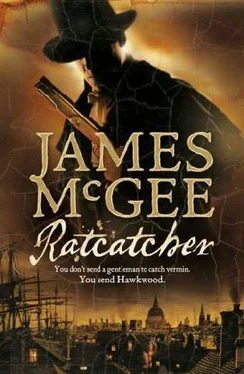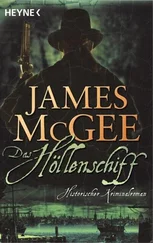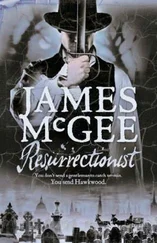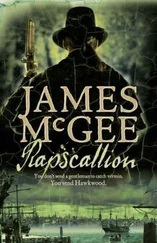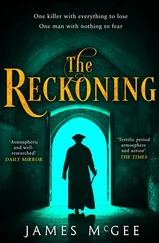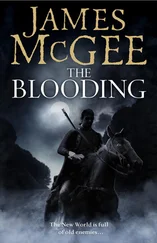James McGee - Ratcatcher
Здесь есть возможность читать онлайн «James McGee - Ratcatcher» — ознакомительный отрывок электронной книги совершенно бесплатно, а после прочтения отрывка купить полную версию. В некоторых случаях можно слушать аудио, скачать через торрент в формате fb2 и присутствует краткое содержание. Жанр: Исторический детектив, на английском языке. Описание произведения, (предисловие) а так же отзывы посетителей доступны на портале библиотеки ЛибКат.
- Название:Ratcatcher
- Автор:
- Жанр:
- Год:неизвестен
- ISBN:нет данных
- Рейтинг книги:4 / 5. Голосов: 1
-
Избранное:Добавить в избранное
- Отзывы:
-
Ваша оценка:
- 80
- 1
- 2
- 3
- 4
- 5
Ratcatcher: краткое содержание, описание и аннотация
Предлагаем к чтению аннотацию, описание, краткое содержание или предисловие (зависит от того, что написал сам автор книги «Ratcatcher»). Если вы не нашли необходимую информацию о книге — напишите в комментариях, мы постараемся отыскать её.
Ratcatcher — читать онлайн ознакомительный отрывок
Ниже представлен текст книги, разбитый по страницам. Система сохранения места последней прочитанной страницы, позволяет с удобством читать онлайн бесплатно книгу «Ratcatcher», без необходимости каждый раз заново искать на чём Вы остановились. Поставьте закладку, и сможете в любой момент перейти на страницу, на которой закончили чтение.
Интервал:
Закладка:
“By God, do I!”
The Dorothea, the colonel explained, had been an ancient Danish brig anchored in Walmer Roads, off the Dover coast. Fulton’s submarine bombs had reduced the ship to matchwood.
“That was the result we needed. We were all set. We planned to use Fulton’s torpedoes and my rockets against the French fleet at Cadiz. Would have been the grandest bloody firework display in Europe!” Colonel Congreve shook his head in regret.
“Only our one-eyed admiral got there first,” Blomefield said.
They meant Trafalgar.
Blomefield sighed. “The brave bugger only went and annihilated the Frog fleet. No need for Fulton’s newfangled bombs after that. Nothing left for us to blow up!”
“Didn’t stop him demanding his bloody fee, though!” the First Sea Lord grumbled.
As a final settlement, Fulton had asked for?10,000 for switching allegiance,?100,000 for demonstrating that warships could be destroyed by his invention, a?2,400 annual pension for life, and?60,000 for agreeing not to use his inventions against the British fleet.
The Board of Arbitration consulted and decided Fulton hadn’t done enough to warrant the extortionate payments he was requesting. The Board had eventually awarded him?14,000 plus salary and incidentals already earned, which had amounted to the far from princely sum of?1,640.
“So the bugger dismantled all his equipment and packed off home,” Blomefield said. “Lock, stock, and bloody barrel.”
“Bearing a very aggressive bee in his bonnet,” the colonel added.
“So,” Hawkwood said, “the man has a grudge.”
“A bloody big one, would be my guess.” Congreve sucked at his lower lip reflectively.
“And you think he’s back in France?”
Congreve shook his head. “No, not Fulton. The fellow’s not in the best of health. An emissary, sent in his place.”
“His name is William Lee,” James Read said. “He’s an old friend of Fulton, been working with him for the past five years. Our contacts informed us that he arrived in France at the beginning of the year.”
“Why would the French still be interested after the last time?” Hawkwood asked, mystified. “Why have they changed their minds?”
“Because Bonaparte’s losing the war.” The voice was the Admiral’s. It was the first time he had entered the conversation. “Our little corporal’s on the run!”
Congreve nodded. “And it would give Fulton a chance to get back at us. It’s no secret that relations between ourselves and the Americans have become somewhat strained.” The colonel pursed his lips. “There’ve been several incidents between our ships at sea. The navy’s been stopping American ships to search for deserters. The Americans have accused us of piracy. It would come as no surprise to me if the situation worsened.”
“You mean war?” Hawkwood said, disbelievingly.
At this, the First Sea Lord gave a meaningful cough. It sounded suspiciously like a veiled warning. Congreve shrugged. “Who knows?”
While Hawkwood was contemplating the noncommittal answer, the colonel looked towards Dalryde. “Would you care to continue, Admiral?”
Dalryde cleared his throat. “We thought it might pay us to keep an eye on Lee. We suspected Fulton had made a number of improvements. He wrote a book last year: Torpedo War and Submarine Explosions. We managed to secure a copy. The contents were disturbing enough for us to dispatch an agent to France to investigate. Resourceful fellow, name of Ramillies, one of our very best men. We’d used him on several previous occasions.”
The admiral looked back at the colonel, as if suggesting he might like to take up the story. The colonel duly obliged.
“Lieutenant Ramillies unearthed evidence suggesting that Lee had definitely constructed a more advanced submersible. Through contacts in the Bourbon resistance he was able to secure employment in the dockyard where the submersible was being built. From there, at great risk to himself, he managed to gain entry into Lee’s workshop and made copies of the submersible’s plans.” The colonel indicated the drawings. “Not exactly draughtsman’s quality, I’ll grant you, but more than sufficient for our needs. A short time later, he learned that trials of the weapon were due to be conducted on the Seine and infiltrated the area to observe proceedings.”
“But he was discovered,” the admiral broke in, shifting in his chair. “He managed to escape by the skin of his teeth, with the drawings of the submersible, but he was severely wounded. He was sheltered by Royalist sympathizers until he was well enough to travel. They then arranged passage for him back to England. He was landed at Dover and was on his way to London when his coach was held up on the Kent Road. He was murdered and his plans of the submersible were stolen…” The admiral paused. “The rest you know.”
The colonel picked up one of the sketches and stared at it intently. “We believe the submersible boat is now operational and ready to be used against our convoys. We also believe that Bonaparte has contracted Lee to attack a specific target. What we do not know is the nature of that target.”
Hawkwood was still having trouble with the logistics. “But how does the weapon work? How does it deliver the bombs?”
“What?” Congreve perked up. “The bombs, you say? Ah yes, of course, well, it’s dashed simple, really.” The colonel smiled suddenly. “But then they say the best inventions always are.”
Hawkwood wondered if the colonel was alluding to his own experimental rockets. Recalling their erratic behaviour, they had looked anything but simple.
The colonel picked up the pencil once more. “Now, where are we?” The colonel reached for the sketch of the submersible and pointed. “You see the dome? There’s a barbed spike attached to a rod that sticks out from the top of it. Fulton called it the horn. When the submersible is positioned beneath the target vessel, the bottom of the rod is struck from inside the dome, driving the spike up into the target’s hull. You follow?”
Hawkwood nodded.
“When the spike is secure, the submersible detaches itself, leaving the spike embedded in the target’s hull. At the bow of the submersible there’s a windlass controlled from inside the craft. A line runs aft, from the windlass, through a ring in the spike to the submersible’s stern…” the colonel moved the pencil point “…where it’s attached to a copper barrel containing gunpowder and a primer. As the submersible moves off, the line on the windlass is released. When all the line is played out, the forward motion of the submersible is transferred to the barrel by means of the line passing through the hole in the spike. This detaches the barrel, drawing it against the side of the target. The contact causes the primer to spark and ignite the powder.” The colonel grinned. “The rest I’ll leave to your imagination.”
Ingenious, Hawkwood thought, didn’t begin to describe it. He peered past the pencil point, still hovering above the sketch. “How big would the charge have to be?”
The colonel shrugged. “Not that great. Twenty pounds, perhaps. That amount of powder will do more damage under water than it would on land. The force of a detonation doesn’t disperse as easily in water as it does in compressible air.”
Astonishing, Hawkwood thought. And you’d never hear a damned thing until it was too late. “And the hammer and trigger-some kind of timing device?”
The colonel nodded. “That would be my guess.”
“And the writing?” Hawkwood asked.
“Writing?” the colonel said.
“There,” Hawkwood said, indicating the faint lettering.
The colonel turned the paper in his hand and peered myopically.
“It doesn’t make much sense,” Hawkwood said. “The…t-i-s-the rest of the word’s missing.”
Читать дальшеИнтервал:
Закладка:
Похожие книги на «Ratcatcher»
Представляем Вашему вниманию похожие книги на «Ratcatcher» списком для выбора. Мы отобрали схожую по названию и смыслу литературу в надежде предоставить читателям больше вариантов отыскать новые, интересные, ещё непрочитанные произведения.
Обсуждение, отзывы о книге «Ratcatcher» и просто собственные мнения читателей. Оставьте ваши комментарии, напишите, что Вы думаете о произведении, его смысле или главных героях. Укажите что конкретно понравилось, а что нет, и почему Вы так считаете.
